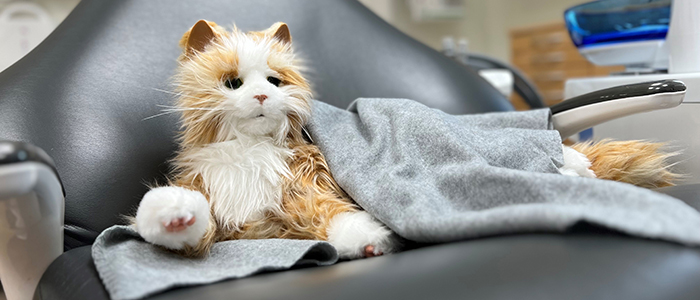Robot cats as support aids during dental visits for children with autism spectrum disorder

Childre with autism spectrum condition can find it hard to cooperate in a dental healthcare situation due to difficulties with social interactions and communication. Can robot cats help increase the children's concentration?
Role of Institute of Postgraduate Dental Education
Project leader
Project start
2022
Partner
Funding
Project leader
Anna Lena Sundell, consultant orthodontist, clinic manager, Department of Pedodontics, Institute of Postgraduate Dental Education, Region Jönköping County, Adjunct university lecturer in Odontology, Jönköpings University.
Project members
Anna Jönsson, dental hygenist, Department of Pedodontics, Institute of Postgraduate Dental Education, Region Jönköping County.
Sofia Thunberg, doctoral student, cognitive scientist, Institute of Computer Sciences, Linköping University.
Purpose and goal
The purpose is to examine whether the use of robot cats can help children with autism spectrum condition during dentist appointments. Studes show that children's concentration can increase with the help of the robots.
Challenge
Children with autism spectrum condition may have difficulty cooperating in a dental care situation due to difficulties with social interaction and communication. Many times children are sensitive to stress and various sensory impressions. They often like routines and want to do things their way.
Solution
Ten children with autism spectrum condition will have a robotic cat on their lap during appointments with a dental hygienist every three months for a year. The visits will be filmed and analysed, the children questioned and the parents interviewed. The study will contribute new insights into the effect of robotic cats on dental visits.
Effekt
If it is shown that the children benefit from the robot cats during their dental appointment, then this could result in fewer visits.


